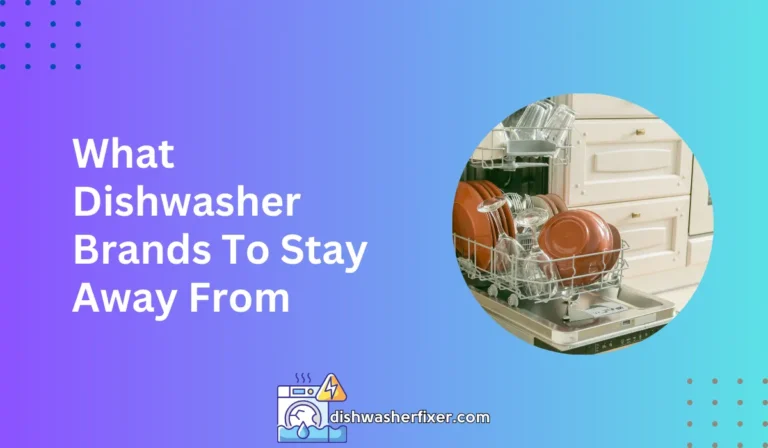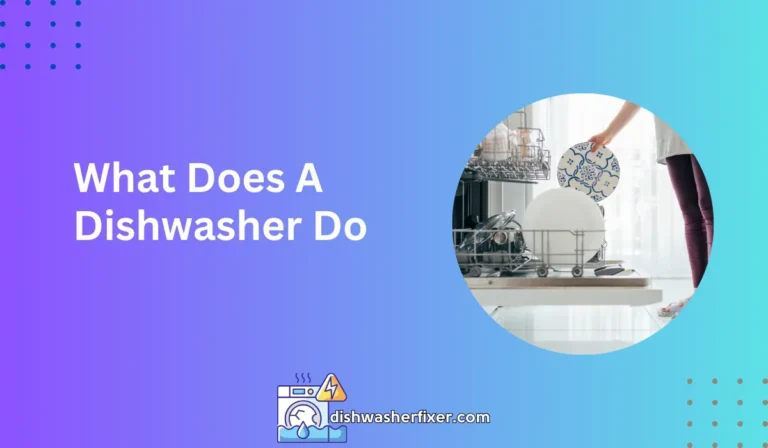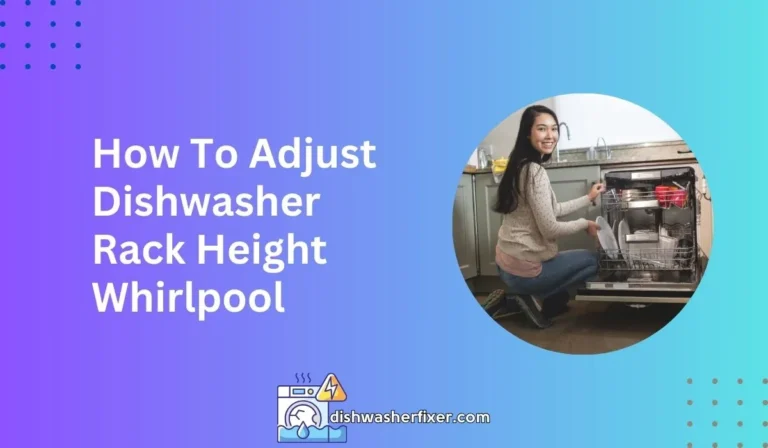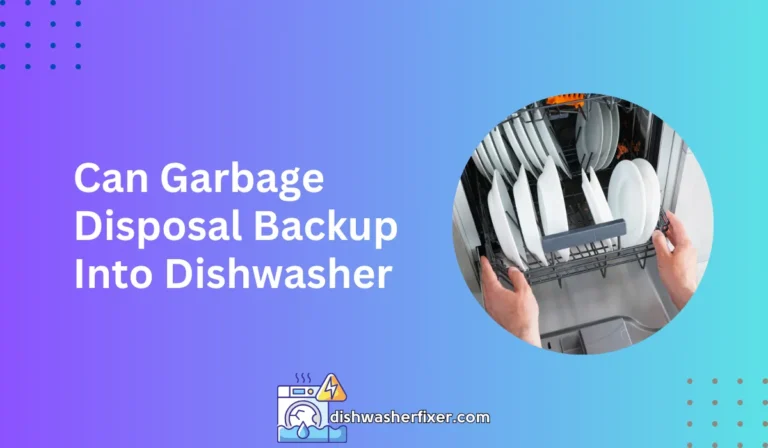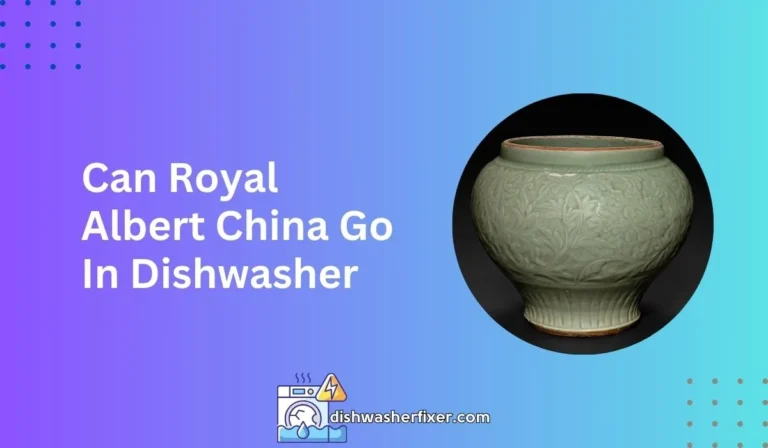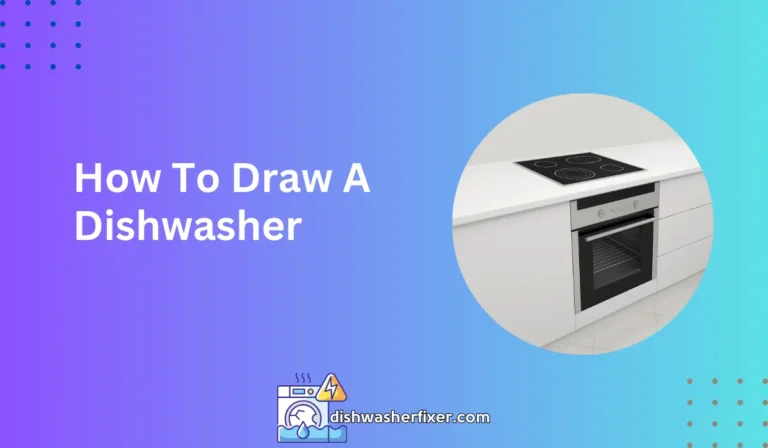Can A Clogged Garbage Disposal Cause Dishwasher Not To Drain?
Yes, a clogged garbage disposal can cause a dishwasher not to drain. Shared plumbing lines allow debris from a clogged disposal to block the dishwasher’s drain path. Clearing the disposal’s clog should resolve the draining issue for the dishwasher.
Understanding the Connection Between Garbage Disposal and Dishwasher
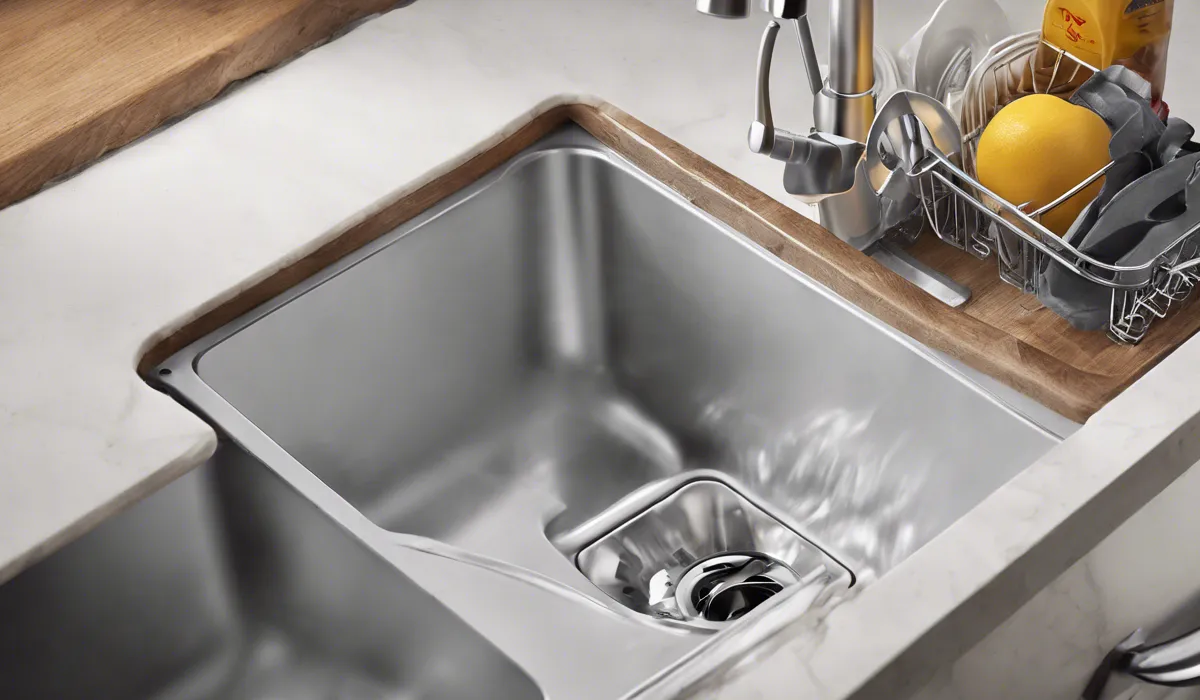
Shared Plumbing in Kitchen Appliances
Many homeowners are unaware that the garbage disposal and dishwasher in their kitchen often share a common plumbing connection.
This design allows water from the dishwasher to pass through the garbage disposal, where it can be ground up and flushed out into the main sewer line. This efficient system works well until a clog occurs.
The Role of the Shared Drain Line
Within the shared drain line, the water from your dishwasher flows through the garbage disposal. If the disposal is clear, water can easily pass through.
However, a blockage can prevent water from draining properly, causing it to back up into the dishwasher, which leads to drainage issues.
Clogging Impact on Dishwasher and Garbage Disposal
When a clog happens in the garbage disposal, it can have a direct impact on your dishwasher. If the disposal is unable to drain, water has nowhere to go, which may result in standing water in both appliances.
This is why keeping your disposal clear is crucial for the overall health of your kitchen’s plumbing.
Understanding the Drain Path
A clear understanding of the drain path is essential. When the dishwasher runs, it expels dirty water that must travel through the garbage disposal’s chamber to reach the main sewer line.
This journey is usually seamless, but a clog can disrupt it, resulting in water backing up into the dishwasher.
Common Causes of Garbage Disposal Clogs Affecting Dishwasher Drainage
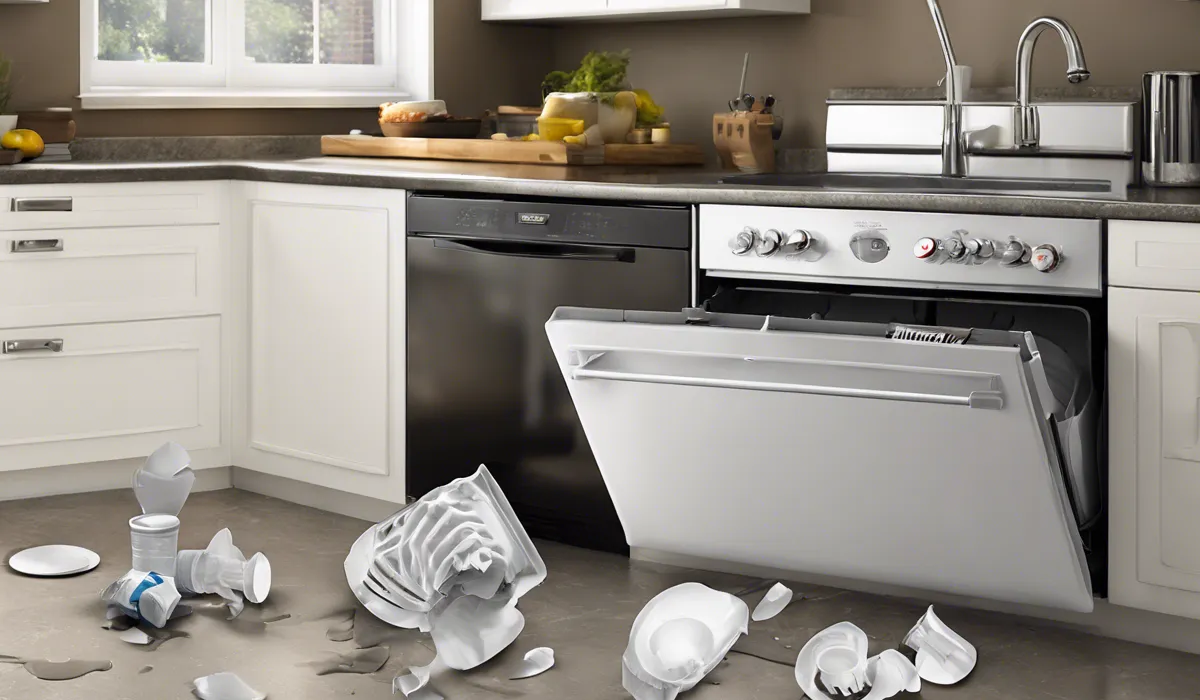
Inappropriate Waste Disposal
One of the primary causes of disposal clogs is the improper disposal of kitchen waste.
Grease, fibrous materials like celery, and large chunks of food can create significant blockages. These items do not break down easily and can accumulate, leading to clogs that affect both the disposal and the dishwasher.
Neglected Garbage Disposal Maintenance
Just like any other appliance, garbage disposals require regular maintenance. Neglecting to clean and maintain your disposal can lead to a buildup of food debris and fat, which may eventually cause a blockage that affects dishwasher drainage.
Overloading the Disposal
Overloading the garbage disposal with too much waste at once is a common mistake. This can overwhelm the system and lead to a partial or complete clog, preventing water from the dishwasher from draining properly.
Foreign Objects in the Disposal
Sometimes, foreign objects like utensils or small toys can accidentally fall into the garbage disposal. These items cannot be broken down and can cause immediate blockages, affecting the dishwasher’s ability to drain.
Troubleshooting and Resolving Drainage Issues

Inspecting and Unclogging the Garbage Disposal
If you suspect a clog, the first step is to safely inspect the garbage disposal. Make sure it is turned off and unplugged before attempting to remove any blockages.
Use a flashlight to look for visible clogs and employ pliers or a disposal wrench to carefully remove obstructions.
Checking the Dishwasher Drain Hose
The dishwasher drain hose can also be a culprit for blockages. Disconnect the hose and inspect it for kinks or clogs.
Running a gentle stream of water through it can help clear any obstructions. Remember, if the hose is damaged, it may need to be replaced to ensure proper drainage.
When to Seek Professional Help
For complex plumbing issues that you can’t resolve, seeking professional assistance is important. A licensed plumber can diagnose and fix the issue, ensuring that both your garbage disposal and dishwasher function correctly.
Preventative Measures for Future Clogs
To avoid future clogs, practice proper disposal usage by avoiding the introduction of inappropriate materials. Run cold water before and after using the disposal, and consider using a strainer to catch larger pieces of food.
Regularly clean your disposal with a mixture of baking soda and vinegar to maintain its efficiency and prevent clogs.
FAQs About Clogged Garbage Disposal and Dishwasher Drainage
Can a clogged garbage disposal prevent a dishwasher from draining?
Yes, a clogged garbage disposal can prevent a dishwasher from draining if they share the same plumbing lines.
What is the common cause for a dishwasher not draining due to a garbage disposal?
The common cause is debris from a clogged garbage disposal obstructing the shared drain path.
How do you fix a dishwasher that won’t drain due to a clogged garbage disposal?
Clearing the clog in the garbage disposal should allow the dishwasher to drain properly.
Can running a garbage disposal help a dishwasher to drain?
Yes, running a garbage disposal can help clear any minor blockages, aiding the dishwasher to drain.
Should you operate the dishwasher if the garbage disposal is clogged?
It’s not recommended to run the dishwasher with a clogged garbage disposal because it may lead to drainage issues or water backup.
Final Thoughts
A clogged garbage disposal can indeed impact the drainage of a dishwasher due to interconnected plumbing.
When the disposal is blocked, it can prevent water from properly exiting the dishwasher. Addressing the clog within the garbage disposal is typically the necessary step to restore normal drainage function to the dishwasher.
